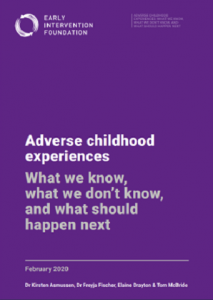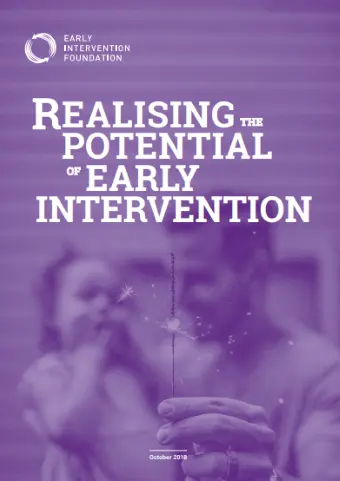iHV welcomes the publication of the Early Intervention Foundation’s report – Adverse childhood experiences: What we know, what we don’t know, and what should happen next.
This report surveys the evidence relating to the prevalence, impact and treatment of Adverse Childhood Experiences (ACEs), the extent to which ACEs should provide the basis for frontline practice and service design, and the known level of effectiveness and value of ACE-related approaches, such as routine enquiry and trauma-informed care.
Commenting on the launch of Adverse childhood experiences: What we know, what we don’t know, and what should happen next, Dr Cheryll Adams CBE, Executive Director of the iHV, said:
“This report will add real value to the current interest in ACEs, pointing out as it does their limitations as well as their benefits in understanding the impact of adversity in childhood and into later life. Its publication, in the same week as Sir Michael Marmot’s 10 Years On update report on health inequalities, adds urgency to the recognition of the adverse experiences of so many children as a result of an more unequal society as well as their individual circumstances.”




